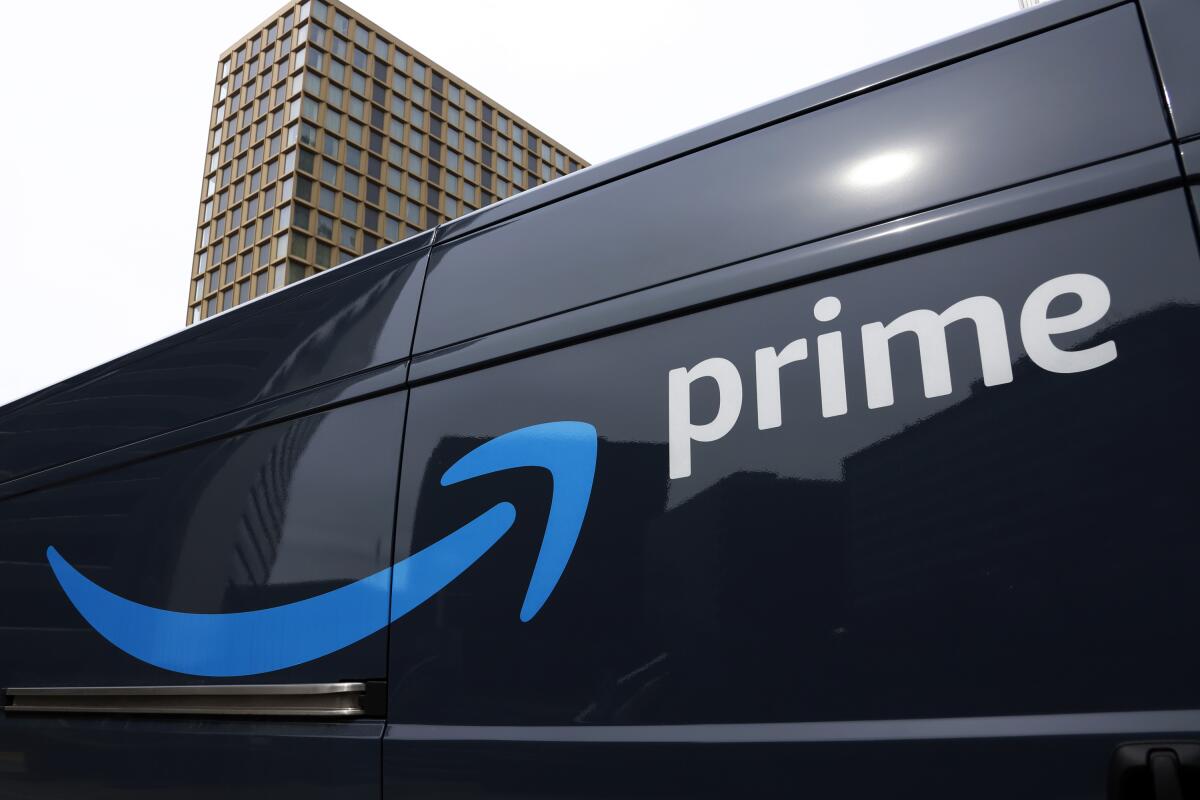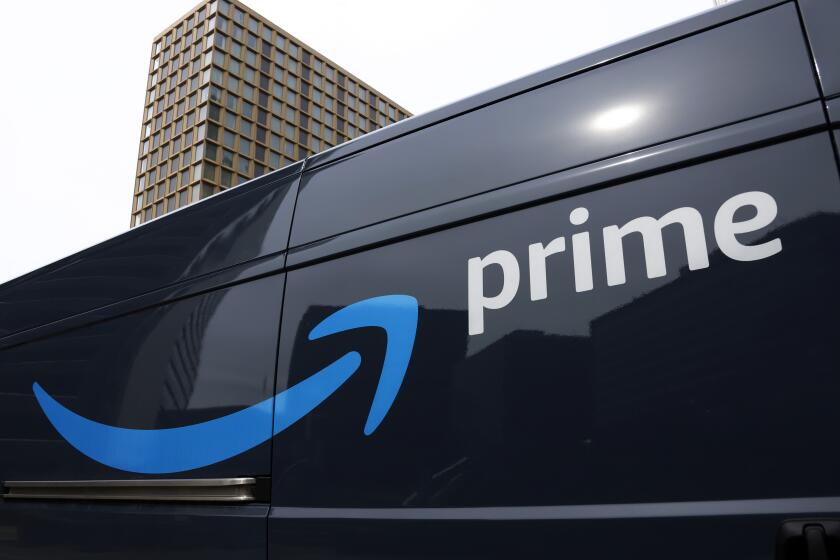FTC alleges Amazon ‘tricked and trapped people’ with its Prime subscriptions

- Share via
The Federal Trade Commission sued Amazon.com on Wednesday, alleging the e-commerce giant duped consumers into signing up for its Prime membership service and deliberately made it hard to cancel.
The FTC filed a lawsuit in federal court in Washington state claiming that Amazon’s website manipulates users into enrolling in Prime, for which subscribers pay $139 a year for privileges such as speedy free delivery, video streaming and access to 100 million songs. The FTC also alleged that the cancellation process for Prime is difficult to find and requires multiple steps. The agency said Amazon referred to the process internally as the “Iliad,” after Homer’s lengthy epic poem.
The agency has recently targeted subscription cancellations, proposing a rule in March that would require companies to make it as easy to cancel as it is to sign up.
Amazon has prioritized expanding grocery sales in recent years, but lately has been cutting costs companywide as online shopping growth slows.
In its complaint, the FTC said consumers must click through five pages on the desktop web store or six on the mobile app to cancel Prime. It also claimed Amazon failed to turn over information sought by investigators, taking more than 18 months to produce materials the FTC sought.
The FTC said Amazon’s tactics violate a 2010 consumer protection law designed to protect online shoppers. The agency previously used the law to ding MoviePass and its former parent company, Helios and Matheson Analytics; Intuit’s Credit Karma; and Ericsson’s internet phone service Vonage over subscription auto-renewal and cancellation practices. Vonage paid $100 million to settle the FTC’s suit and Credit Karma $3 million to reimburse consumers.
“Amazon tricked and trapped people into recurring subscriptions without their consent, not only frustrating users but also costing them significant money,” FTC Chair Lina Khan said in a statement.
Amazon didn’t immediately respond to a request for comment.
Prime membership has been a key differentiator for Amazon, helping it convert occasional shoppers into loyal devotees who make the company their default choice when shopping online. Walmart, Amazon’s biggest competitor, launched the Walmart+ subscription in 2020 for $98 a year, offering many of the same benefits.
About 167 million Amazon shoppers had Prime memberships as of March, unchanged from a year earlier, according to Consumer Intelligence Research Partners. More than 90% of consumers who try a free 30-day Prime membership become paying members, according to the Chicago research firm.
Analysts say Prime membership has stagnated in the U.S. since Amazon boosted the annual price from $119, a sign that a subscription is less attractive to consumers struggling with stubbornly high inflation.
In the U.S., Prime members spend about twice as much on Amazon as non-Prime members. Amazon’s revenue from subscription services, which is mostly from Prime memberships, was $9.66 billion in the quarter that ended March 31, about 7.6% of its overall revenue for the period.
Amazon changed its process for canceling Prime subscriptions last summer after pressure from the European Commission and national consumer watchdogs. The company introduced a simplified two-click process.
The suit is the third the FTC has filed against Amazon in the last month. The company agreed to pay $30.8 million to settle allegations that it failed to delete data about children collected by its Alexa speakers and that its Ring doorbells and cameras illegally spied on users. Amazon said it disagreed with the FTC’s allegations but agreed to settlements to resolve the cases.
More to Read
Inside the business of entertainment
The Wide Shot brings you news, analysis and insights on everything from streaming wars to production — and what it all means for the future.
You may occasionally receive promotional content from the Los Angeles Times.











